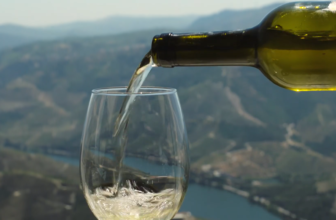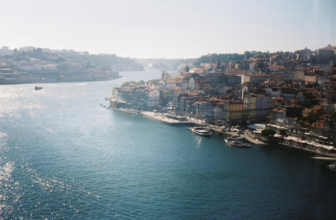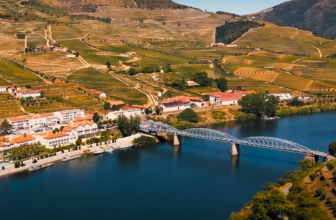Unraveling Porto’s Safety: A Traveler’s Essential Guide
Porto in Northern Portugal has long captivated visitors with its beauty and reputation as a safe city. Currently ranked as the 7th safest place for solo female travelers, the city provides a comforting sense of security with its well-lit and patrolled streets. Still, the question for many travelers remains: How safe is Porto? Whether you’re a seasoned globetrotter or embarking on your first solo adventure, understanding the safety conditions wherever you’re traveling can significantly improve the quality of your visit, mainly when you are responsible for planning the perfect family holiday.
Portugal has long maintained a strong reputation as one of the safest countries in Europe, with Porto being one of its safest city centers. Anyone looking to add a trip to Porto to their travel planner would be happy to know that this safe city observed a 7.8% decrease in violent crimes from 2016 to 2017!
However, this, of course, doesn’t mean tourists should let their entire guard down. As in most European cities, visitors to Porto should be aware of minor petty crimes like pickpocketing and bag snatching, particularly in bustling tourist hubs and train stations. It would be wise to keep your valuables stored securely, perhaps in a hotel safe, and only to carry small sums of cash to deter such occurrences. While violent crimes are an extreme rarity in Porto, exercising common sense and taking preventative safety measures will help make sure your visit is one you won’t forget!
A General Overview of Safety in Porto
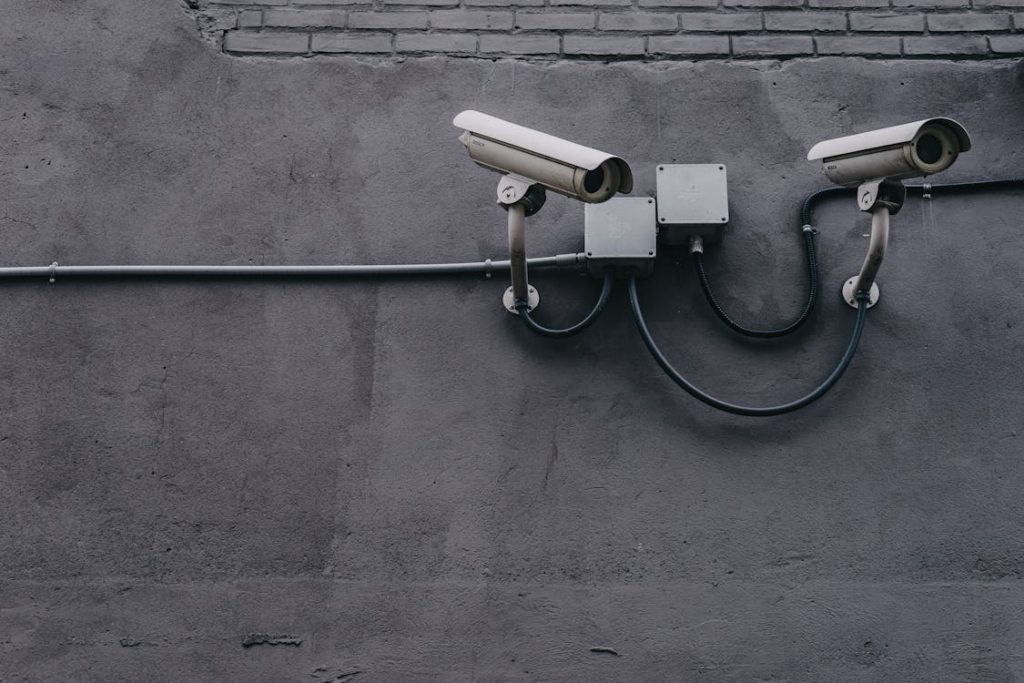
Enhanced security through CCTV cameras keeps a watchful eye on Porto’s vibrant city life.
Porto, located along the scenic banks of the Douro River in northern Portugal, has a generally favorable safety record for tourists. However, as with any major city, there are certain areas where one must exercise caution.
According to the Safe Cities Index by The Economist Intelligence Unit, Porto often ranks among the top safety cities. The unit considers personal safety, digital security, health security, and infrastructure security. This ranking reflects the city’s proactive measures to ensure the well-being of its residents and visitors alike.
Compared to similar European cities such as Barcelona, Rome, or Paris, Porto stands out as a relatively low-crime destination, with fewer pickpocketing or tourist traps. However, like any urban area, travelers should remain vigilant, especially in crowded tourist hotspots and public transportation hubs.
Safety is built right into Porto’s urban layout. The city’s well-preserved historic center (a UNESCO World Heritage Site!) fosters community and security with its winding medieval streets and bustling squares. Locals are known for their friendliness and willingness to assist visitors, which can be reassuring for travelers exploring unfamiliar surroundings.
Porto’s local authorities and tourism organizations have implemented various measures to ensure visitors’ safety. Police presence is noticeable in key tourist zones, providing a sense of security for travelers exploring the city’s historic streets and bustling markets. Additionally, the city has a well-developed public transportation system, including buses and trams, which are generally safe and reliable for getting around.
While exercising essential caution is always advisable, travelers can confidently immerse themselves in Porto’s exciting attractions without undue concern for safety.
Understanding the Types of Safety Concerns
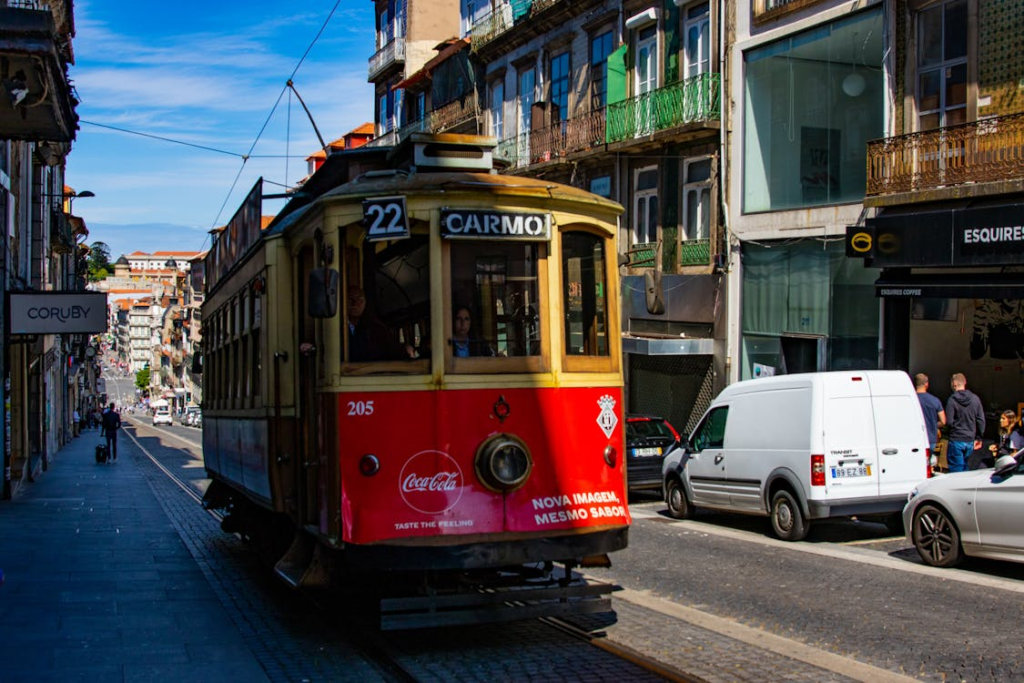
Travel back in time aboard Porto’s charming yellow tram, navigating the city’s picturesque hills and historic districts.
Traveling to any new destination comes with a certain degree of safety challenges. One of the city’s prevalent concerns in Porto is petty theft, such as pickpocketing and bag snatching. These petty crimes are more likely to occur on public trams and the metro train network, and tourists are cautioned to stay alert while taking public transport. Visitors might also be subject to scams at some of the city’s less well-known restaurants and eateries.
For those who plan on experiencing Porto’s nightlife, staying in well-lit, populated areas is paramount. Certain regions of Porto, like Lagarteiro, have been known for more violent crime and need to be steered clear of at all times, but mainly late at night.
Potential Safety Concerns for Travelers
As stated previously, the primary safety concern for most tourists is likely to be simple petty crime, most notably pickpocketing. Areas with a large concentration of people, such as busy tourist attractions and public transportation systems, are the most likely locales for such crimes. Luckily, staying vigilant in busy and crowded areas is one of the easiest and best ways to protect yourself from such crimes.
Traffic safety is another thing tourists ought to consider. While navigating the streets of Porto, tourists must be wary of the city’s traffic and ensure they follow local road safety norms and practices. Using reputable transportation services and being attentive as a pedestrian can decrease the likelihood of accidents.
Overall, the city of Porto is a generally safe place to travel. Emergency services here are often well-regarded, and the city has developed a solid reputation as being safe for solo female travelers. Porto’s allure as a safe city is well-founded, but enjoying its charms without incident often boils down to travelers exercising caution and common sense. Engaging with the city and its offerings smartly and prudently will lead to a safer and more enjoyable visit.
Safety Tips for Daytime Exploration
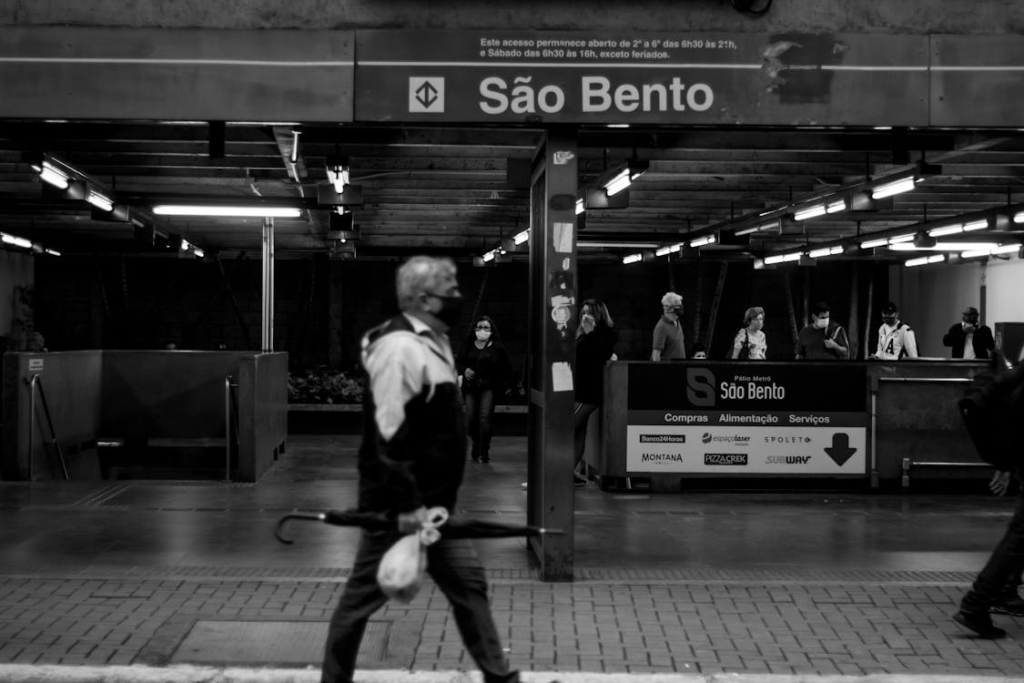
Capture the daily hustle of Porto’s commuters at one of the city’s busy subway stations.
Exploring the charming city of Porto by day is sure to be an experience full of history and culture. Here are some tips on how to make your exploration as safe as it is enjoyable:
- Always be vigilant about your belongings. Tourist hubs and bustling train stations like São Bento and Campanhã are known hotspots for petty thieves, mainly during peak seasons.
- Carry only what you need in cash, and consider using a money belt or hidden pouch. Distribute your cards and money across different compartments in your bag.
- Keep essential items such as your smartphone, wallet, and camera securely attached to you, preferably in zipped or locked compartments that are not easily accessible to others.
- Remain cautious while engaging with street vendors. They may try to scam you. Always verify the prices before ordering in cafes and eateries, especially where prices are not listed. Learning Portuguese phrases could help you question or clarify unexpected charges and lower your chances of being overcharged.
Areas to Visit and Areas to Avoid
There are specific neighborhoods in Porto that tourists are highly encouraged to explore. The bustling streets of Baixa and the picturesque Ribeira District are perfect for a daytime stroll. Both tourists and locals commonly frequent these areas, which provides a greater sense of security to the region. Keep your valuables secured to your person with a cross-body bag or backpack with secure zippers.
Similarly, the Vitória neighborhood and the Palácio de Cristal gardens also receive the green light for tourist safety. Law enforcement is often noticed patrolling the region, adding an extra safety layer for daytime explorers.
Conversely, unsuspecting tourists are strongly advised against visiting the Lagarteiro district, especially after sunset. Stay on well-trafficked, well-lit street routes, and avoid isolated or poorly lit streets at night. If you must travel at night, locals and seasoned travelers recommend using a reputable taxi or ride-sharing service.
Navigating Porto by Night: Safety After Dark
As the sun begins to set over Porto, you can feel its heart begin to pulse more fervently. By night, the city offers a wealth of experiences to all visitors. The historic streets are typically well-lit and continuously patrolled by local law enforcement to create an atmosphere where even solo travelers feel secure. That said, it’s still important to exercise caution as night begins to set over Porto.
Experiencing Porto’s Nightlife Safely
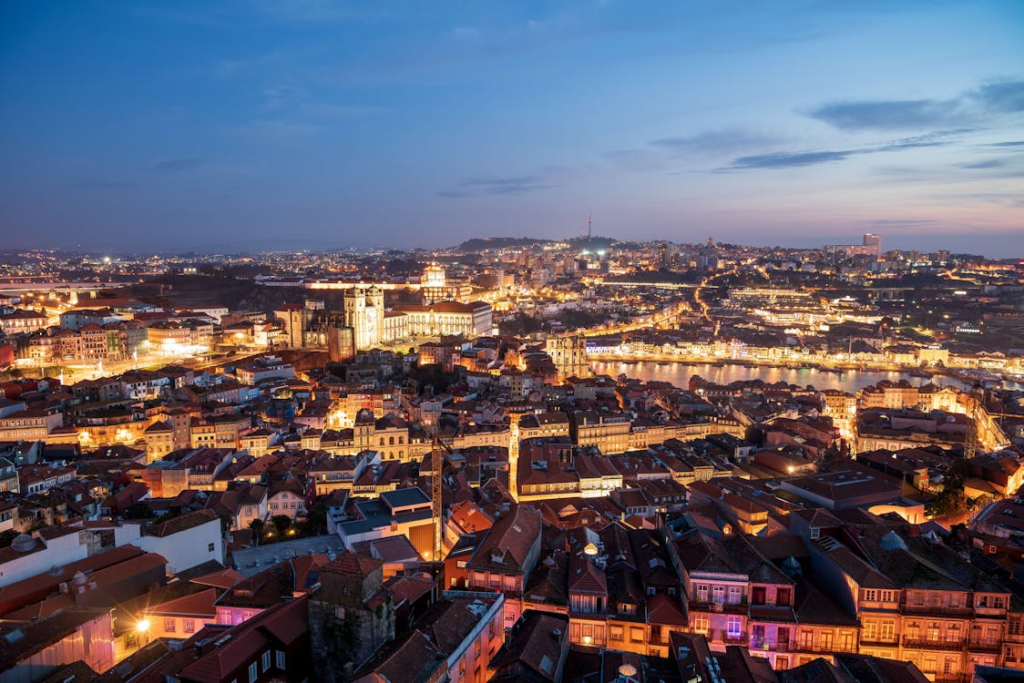
Experience the vibrant nightlife of Porto from above as the city sparkles under a canopy of stars.
Porto’s nightlife is known for its lively bars and clubs, many of which are in the downtown neighborhoods of Ribeira and Baixa. While these are generally safe to enjoy at night, remaining cautious about your personal belongings among the crowd is advisable.
Its reliable public transportation options make getting around the city at night easy. Although the buses and metro often run until late, it might still be worth taking a taxi or ride-sharing service if it’s later in the evening or if you’re unfamiliar with the area.
Here are some other precautions you can take to ensure a great night out on the streets of Porto!
- Stick to the main streets for walking at night, avoiding dimly lit or remote alleyways.
- Keep to well-lit regions and avoid shortcuts through less populated areas.
- Maintain a level of sobriety that allows for awareness. If you have enjoyed Porto’s famous Port wine delights, consider taking a reliable taxi or other safe transport.
Emergency Preparedness: What to Do in a Crisis?

A critical moment is captured as a cellphone makes a life-saving call to Portugal’s emergency number, 112.
Although Portugal enjoys a safe country status and has meager crime rates, being prepared for any emergency is the hallmark of a savvy traveler. If you require immediate assistance, whether for health, criminal, or other urgent matters, dial 112. This is the universal emergency number across the European Union, including Portugal.
- Communication: Upon calling 112, you will connect with an operator. Portuguese healthcare facilities, especially in major cities like Lisbon and Porto, are equipped with multilingual medical professionals, so language is not likely to be a barrier during a critical emergency.
- Medical Assistance: The Portuguese healthcare system ranks 19 on Numbeo’s 2024 Healthcare Index by Country. Travelers can expect high standards of care in case of a medical emergency.
- Public Demonstrations: Although street demonstrations in Portugal are usually peaceful, they can quickly escalate. Tourists should avoid protests and monitor local news for travel disruptions or warnings.
- Natural Phenomena: Visitors should exercise caution while hanging out near the coast. Always heed severe weather warnings to avoid potential natural disasters.
- Comprehensive Travel Insurance: Comprehensive travel insurance is strongly recommended to cover potential medical expenses or emergency evacuations.
Accommodation Safety: Where to Stay?
When traveling to Porto, your choice of accommodation can either make or break your stay. Here are some guidelines to help you choose the best accommodation for your stay.
- Finding Your Safe Haven: Selecting accommodations on well-traveled routes is wise in the quest for safety. Bustling streets often hint at safer neighborhoods and better-patrolled areas.
- Recommended Areas: The Ribeira and Baixa districts are known for their lively ambiance and constant foot traffic, making them ideal places to stay. Not only are these districts central to Porto’s most famous attractions, but their vibrancy contributes to a sense of safety and community. Look for accommodations that have good reviews.
- Safety Features to Look Out For: A secure residence is your first defense against petty theft or violent crime. Check for hotels or rental homes with comprehensive security features, such as 24-hour reception desks, surveillance cameras, and secure entry systems that require vital cards or access codes. When booking a private rental, inquire about the quality of locks on doors and windows and verify that there’s a safe storage option available for your valuables.
More Tips on Ensuring Your Personal and Property Safety
- Secure Your Space: Even in a generally safe city like Porto, it is essential to stay vigilant. Always lock your doors and windows, particularly at night or when the property is unattended. If your accommodation provides a safe, use it to store your passport, travel documents, and any more significant sums of cash.
- Guarding Your Vehicle: Travelers should use secure parking facilities, preferably those under surveillance or providing attendant services. Keep your car doors locked, and never leave visible luggage or valuables in your car.
- Book Smart: Although scams can happen anywhere, there is a particular risk with online bookings. Use verified platforms and secure payment methods to book your accommodation. Double-checking property reviews and contacting your host with any safety-related concerns is a good idea.
- Be Discreet with Your Valuables: You can minimize your theft risk by not flaunting expensive devices or jewelry. When heading out to explore Porto’s city center or the Douro Valley, carry only what you need – cash, one credit card, and a copy of your identification.
By following these guidelines and using common sense, you can ensure that your stay in Porto is as secure as enjoyable!

Daily life unfolds in a Porto subway station as commuters navigate the hustle of urban transit.
Engaging with Locals: Safety in Interactions
Visiting Porto offers the unique opportunity to engage with the warm, friendly locals. However, even in this safe city, it’s crucial to maintain a certain level of caution to ensure a pleasant trip experience.
Interacting with Locals, Understanding Cultural Norms, and Recognizing Situations to Avoid
Learning some basic Portuguese phrases before you embark on your trip can go a long way. A simple “Obrigado” (thank you) can go a long way! Not only will this help ease communication during travels, but it will also demonstrate respect for local culture.
Avoiding sensitive religious or political discussion topics is also a good idea. Beware your environment! Are you visiting a local church or cathedral? Make sure to read up on dress codes and other forms of etiquette for any places you plan to see on your itinerary!
Local meet-up events are excellent venues for safe social interactions. They provide a chance to understand the local culture and establish connections that could enrich your travel experience. Remember, though, that when attending such events, especially at night, it’s recommended to stick to the well-traveled route rather than completely unknown waters.
Although Porto is renowned for its Port wine, it is important to drink responsibly. Though alcohol is cheap in Portugal, it tends to be stronger than what many travelers are used to. You can try your best to control your alcohol intake while out and about. Being intoxicated can not only make you an easier target for petty crimes, but it can also increase the risk of accidents.
The Importance of Respectful Behavior
Maintaining a general attitude of respect does more than just open doors in new places; it keeps you safe! Be mindful of local Porto residents’ personal space and customs to avoid misunderstandings that could lead to potential danger. In vibrant nightlife districts like Ribeira and Baixa, where the ambiance invites you to let loose, maintaining awareness is vital to preventing petty theft, such as pickpocketing.
In many scenarios, general safety precautions suffice. Keeping your belongings close and using a hotel safe to store valuables are simple steps to minimize risks and ensure a safe and enjoyable visit to Porto.
Travel Insurance and Safety Resources
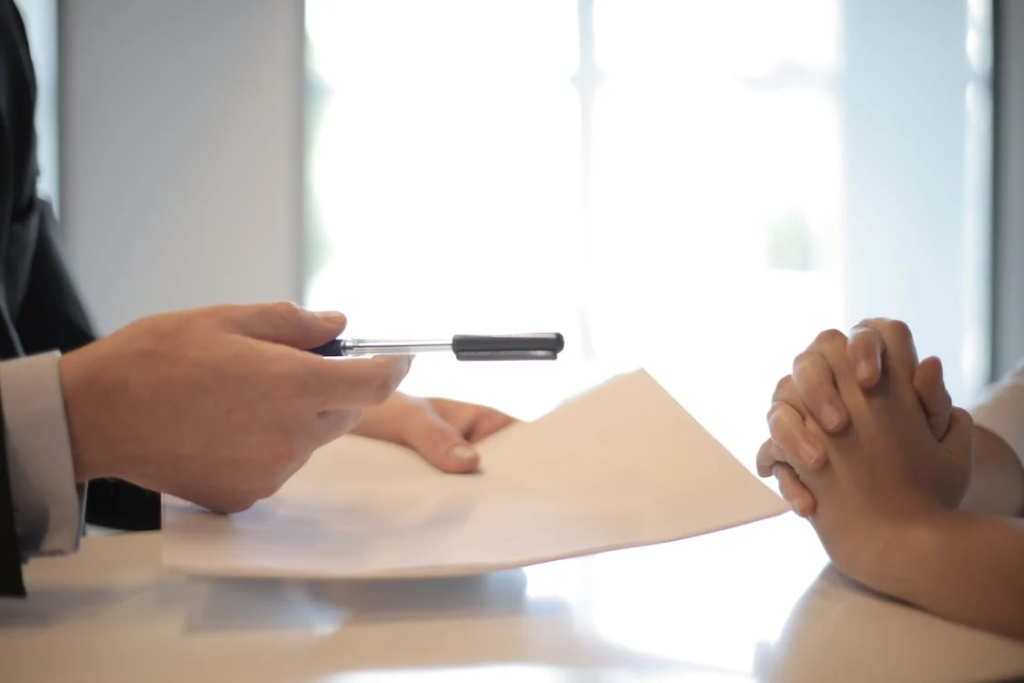
A decisive moment as hands prepare to sign an insurance contract, ensuring future security and peace of mind.
Although Porto is consistently ranked among Europe’s safest travel destinations, unforeseen events are always risky. Securing reliable travel insurance before embarking on any international journey is a good idea.
The Importance of Travel Insurance
Travel insurance acts as your safety net abroad, covering overseas medical costs and the cost of emergency evacuation. To gain a Portuguese visa, travelers are obliged to purchase mandatory travel insurance.
An adequate travel insurance policy should cover the full spectrum of your journey, from any layovers to every planned activity. Your insurance should expressly guarantee coverage for medical expenses, the cost of possible hospitalization, and evacuation in the case of a calamity.
International travel advisories
Understanding the safety condition of your planned destination is crucial to preparing a well-developed itinerary. Below is a list of resources and recommendations for those planning a visit to Porto:
- Travel Advisories: Always check your home country’s travel advisories for an up-to-date summary of how to stay safe in Porto.
- Medical Facilities: Before embarking on your journey, familiarize yourself with the locations and contact information of hospitals and clinics in Porto.
- Awareness about Common Scams: Stay informed about common scams, such as the tendency of restaurants that don’t have listed prices to overcharge.
- Local Law Enforcement: Have local law enforcement on speed dial in case of any emergency. Know the location of your nearest police station.
- Local Consulate/Embassy: For urgent assistance, know the contact details of your country’s consulate or embassy in Porto.
- Weather and Natural Disaster Information: Stay current on severe weather warnings or developing potential natural disasters in your region.
If you can give yourself this valuable information beforehand, your stay in Porto is a delight!
Porto: Beginning of an Adventure!
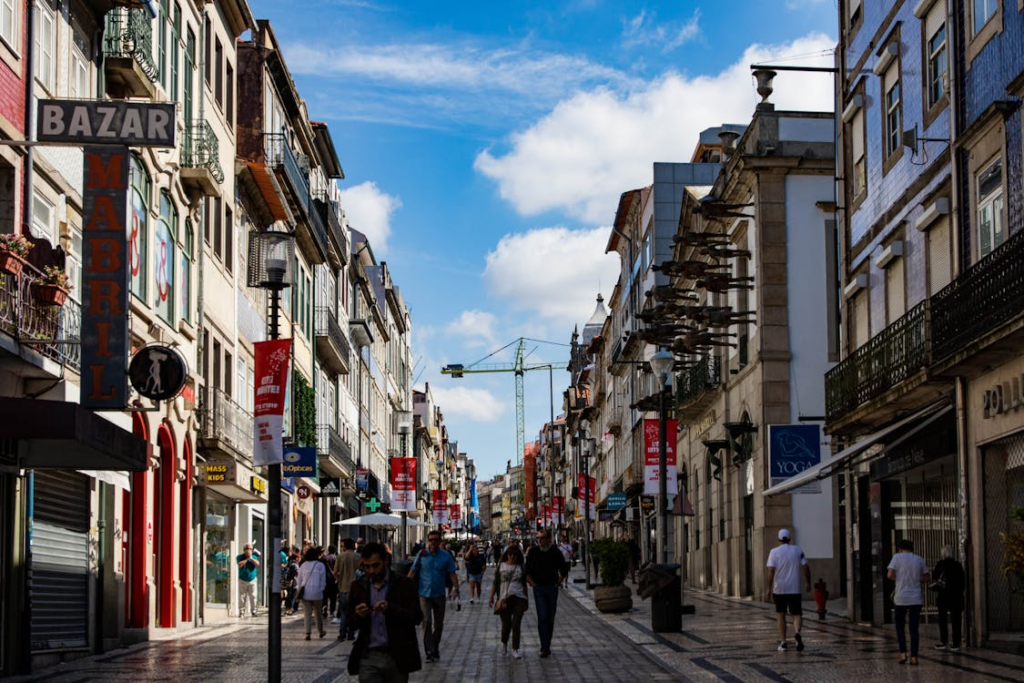
Experience the energy and charm of Porto’s bustling streets, alive with the vibrant rhythms of daily life.
In sum, Porto is highly regarded as one of the safest cities in Europe, with its well-lit thoroughfares and efficient emergency services. While the crime rates in Portugal are modest, especially regarding violent crimes, it’s always wise to exercise common sense while traveling abroad. By staying vigilant of your surroundings, it is easy to minimize the risk of falling victim to petty crimes like pickpocketing. So long as you stay informed of emergency warnings and facilities in your area, there shouldn’t be any reason your trip to Porto shouldn’t be smooth!



